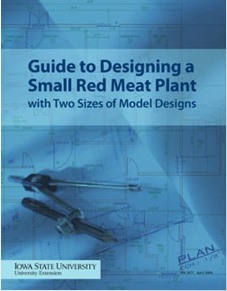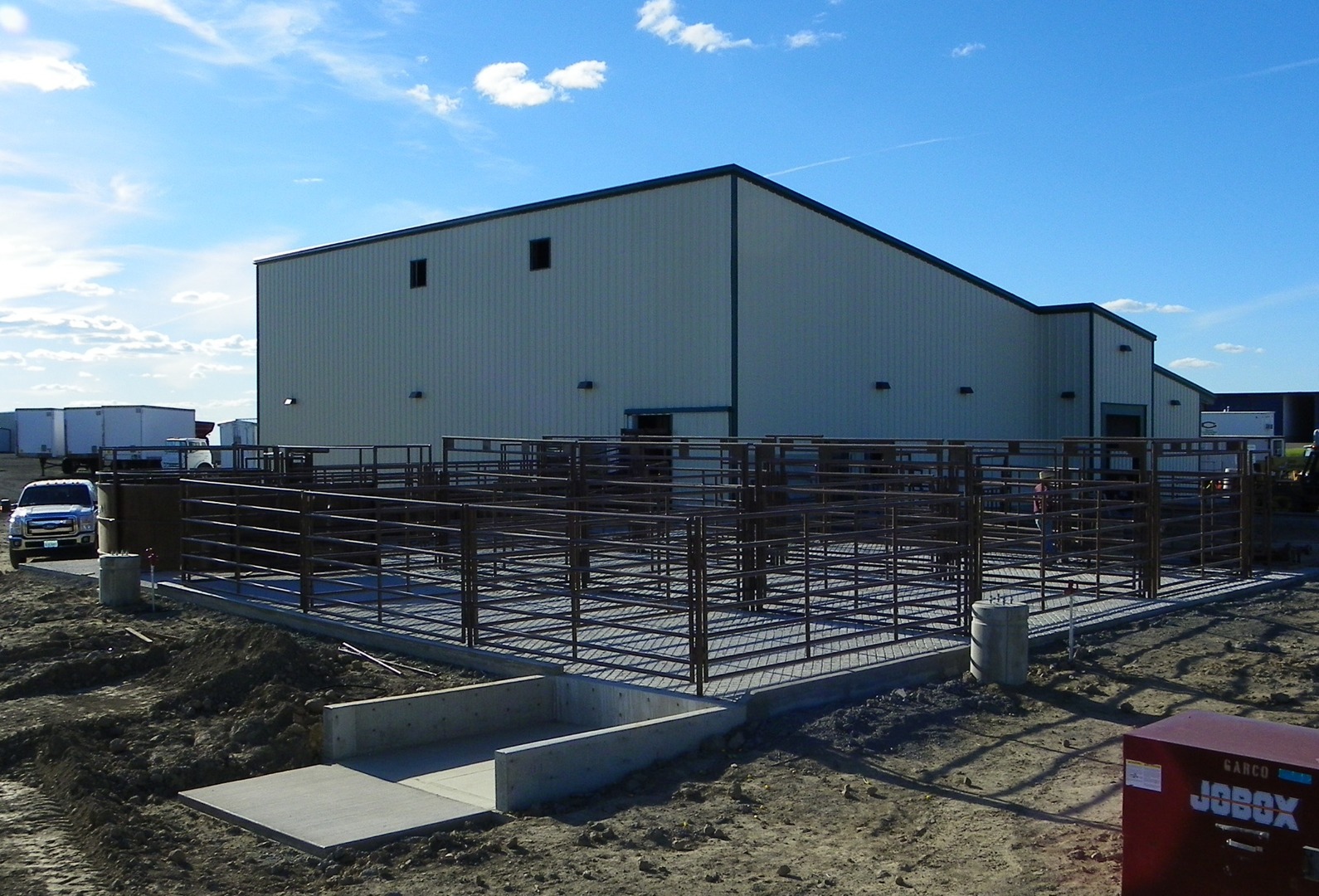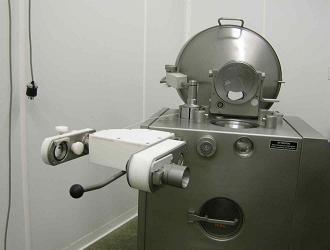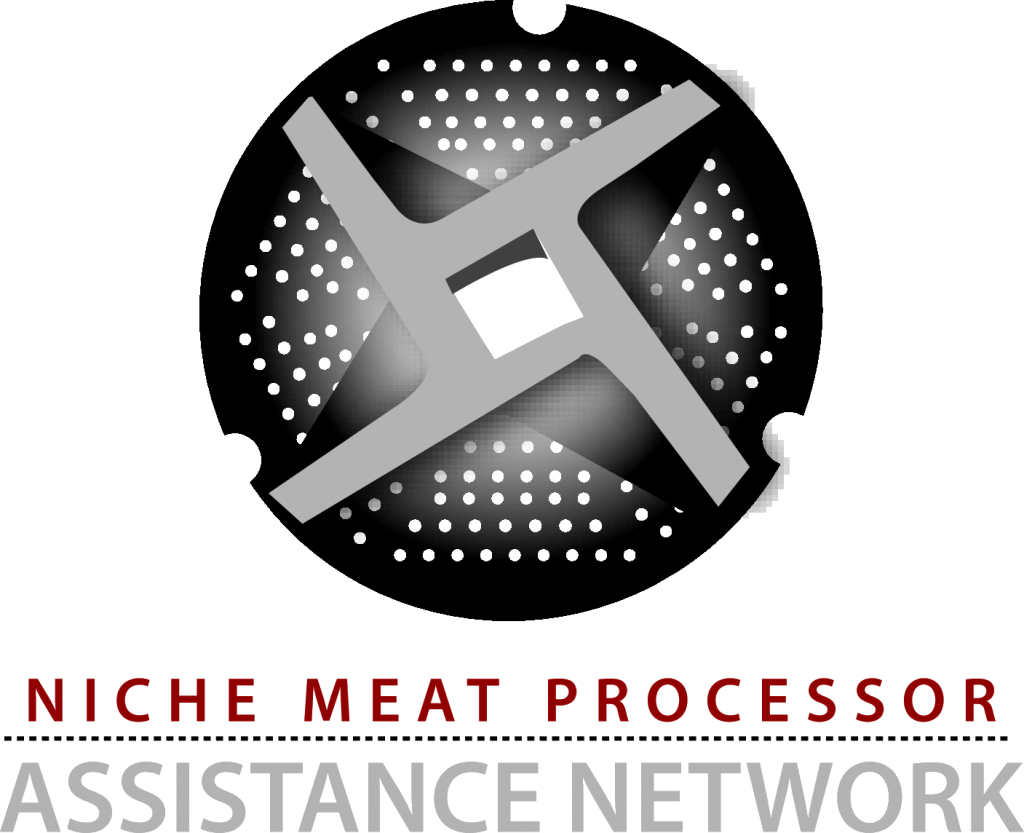What’s on this page?
Building a meat plant is no easy job. Even commercial contractors may not be familiar with the ins and outs of building a food processing plant that needs to be constantly washed down, contains rooms held at -20˚F, and has 1,000+ lb. carcasses hanging from rails throughout the plant. Much information concerning building meat plants is proprietary. Here are the best resources we know about that are publicly available.
Remember: check with your food safety inspection agency and local building authorities before beginning any construction.
Q: Are there any plant designs I can see? How much does it cost to build a meat processing plant?
A: The million dollar question! What is costs to build a plant will vary greatly from place to place and plant to plant: a very general rule of thumb is about $300/sq ft. Take a look at the feasibility studies below: there might be one for your region which will give you a more locally relevant number.
Q: What about waste? How will I deal with wastewater and solid waste?
- Water Quantity and Quality for Meat Processing Facilities
- Wastewater Management for Small Meat Processors
- Alternatives to Rendering: Butcher Waste Composting
Q: I think I want to use a mobile slaughter unit: where can I find out more about MSUs?
Plant Design Guide
T his guide from Iowa State University, Guide to Designing a Small Red Meat Plant with Two Sizes of Model Designs, will help you construct, expand, or upgrade a locker-type red meat plant. These plans can help you avoid some headaches, including deciding if you really need to expand. Sometimes you can ease bottlenecks by upgrading or moving equipment without adding more space, by changing how you schedule your processes, increasing batch size, or changing product flow. The designs in this guide are not intended to be directly built from but to get you started in the right direction.
his guide from Iowa State University, Guide to Designing a Small Red Meat Plant with Two Sizes of Model Designs, will help you construct, expand, or upgrade a locker-type red meat plant. These plans can help you avoid some headaches, including deciding if you really need to expand. Sometimes you can ease bottlenecks by upgrading or moving equipment without adding more space, by changing how you schedule your processes, increasing batch size, or changing product flow. The designs in this guide are not intended to be directly built from but to get you started in the right direction.
Meat Processing Feasibility Studies
Different groups around the country have conducted feasibility studies to learn what kind of processing solution makes the most sense for their area and circumstances. Our summaries of selected studies tell you how the studies were done and what they learned. We give contact info for the authors and links to the full reports.
Meat Processing Equipment
In addition to the physical layout and design of the meat processing facility, you’ll need to think about what kind of equipment is required for the processing services you plan on offering. Check out our Equipment page for videos, advice and more.
Water Quantity and Quality for Meat Processing Facilities
If you’re building a new plant or expanding an existing plant, you need to know how much water you’ll use and how to manage the wastewater.
This downloadable pair of tables (pdf) offers water quantity data from seven real processors of varying sizes and species and water quality data from three of those.
- Quantity data are in gallons per animal.
- Quality data include BOD, TSS, EC, TDS, TN, TKN, Cl, and Coliforms.
Thanks to Kennedy/Jenks Consultants for sharing the data, some of which they got from the Niche Meat Processor Assistance Network listserve.
Wastewater Management for Small Meat Processors
One of the most daunting questions for any new meat processing facility is, “how will we deal with our wastewater?” Depending on the requirements of your state, county, and/or local authorities, wastewater can be treated in various ways. On this page, we explain the basic treatment options.
Alternatives to Rendering: Butcher Waste Composting
Disposal of offal and butcher waste is often increasingly difficult and expensive, as renderers close down or raise prices. Composting this waste has been demonstrated as a viable, safe alternative. An expert in butcher waste composting explains how it’s done, and a small meat processor in Oregon describes his composting operation, including regulations and permitting process.
For more on composting animal waste, check out “Composting Animal Mortalities” from the Cornell Waste Management Institute. Click here to download the document.
Mobile Slaughter Units
For more information on Mobile Slaughter Units (MSUs), check our our MSU page here. This page includes information about MSU operations, financials, regulations and more. We also have MSU Case Studies, links to companies that build MSUs, blueprints for building your own and NMPAN webinars on MSUs.




